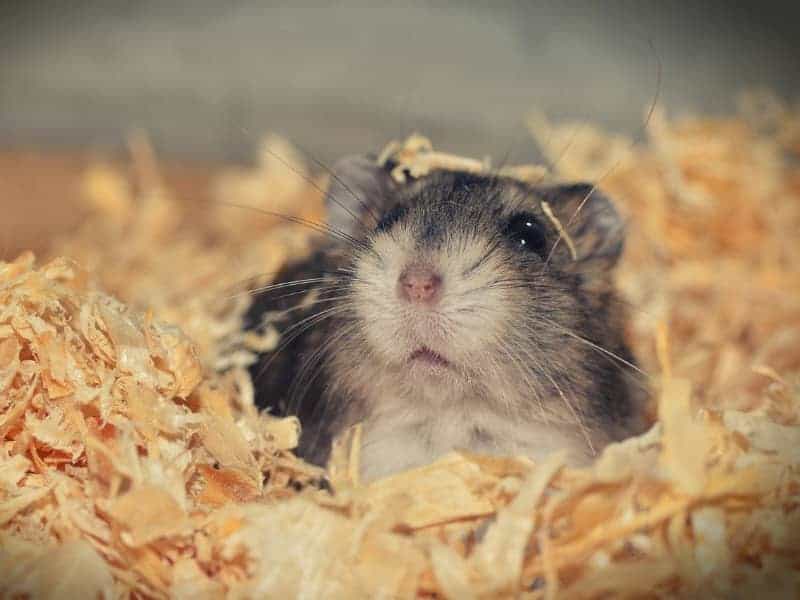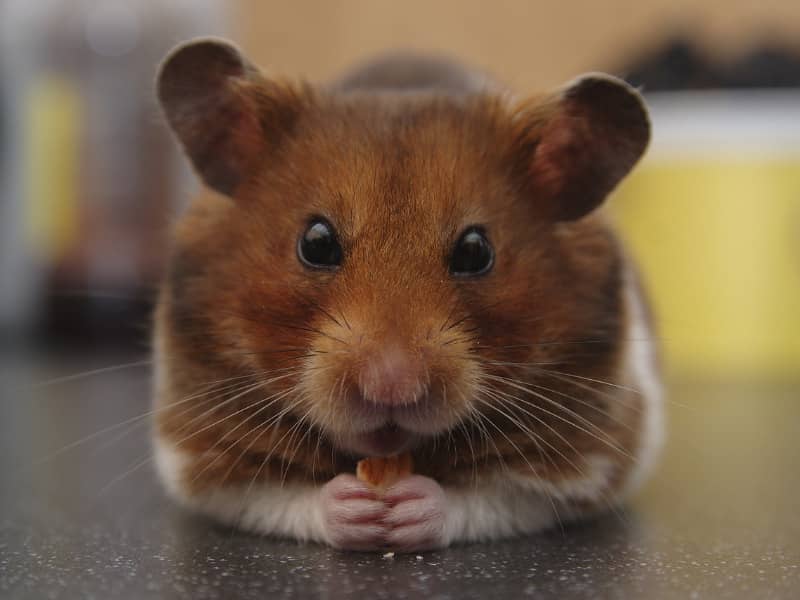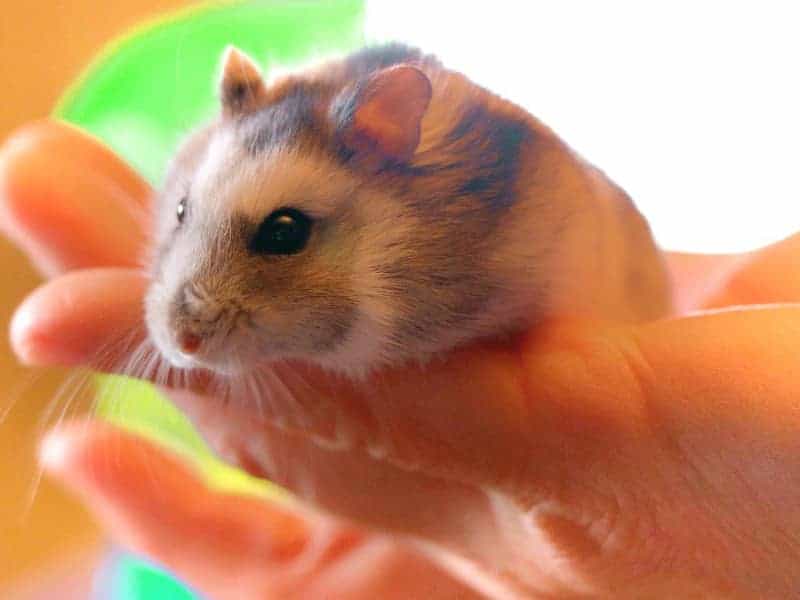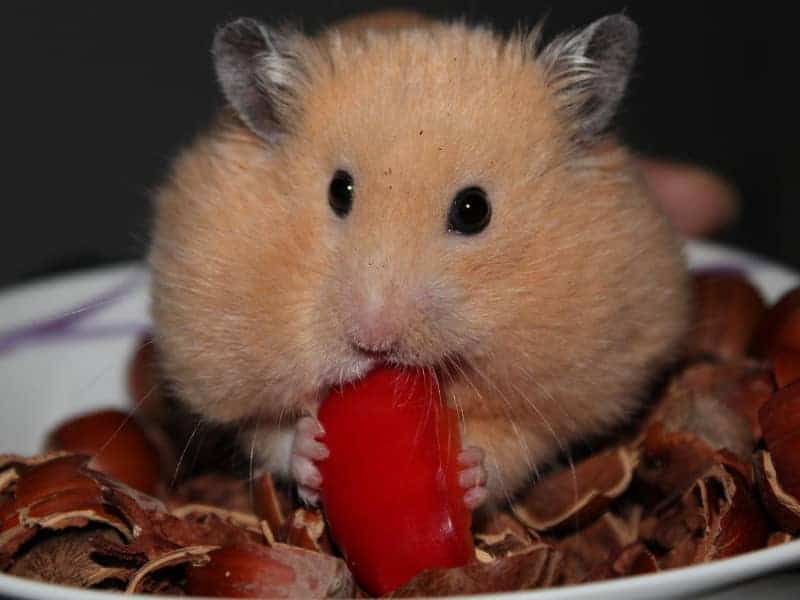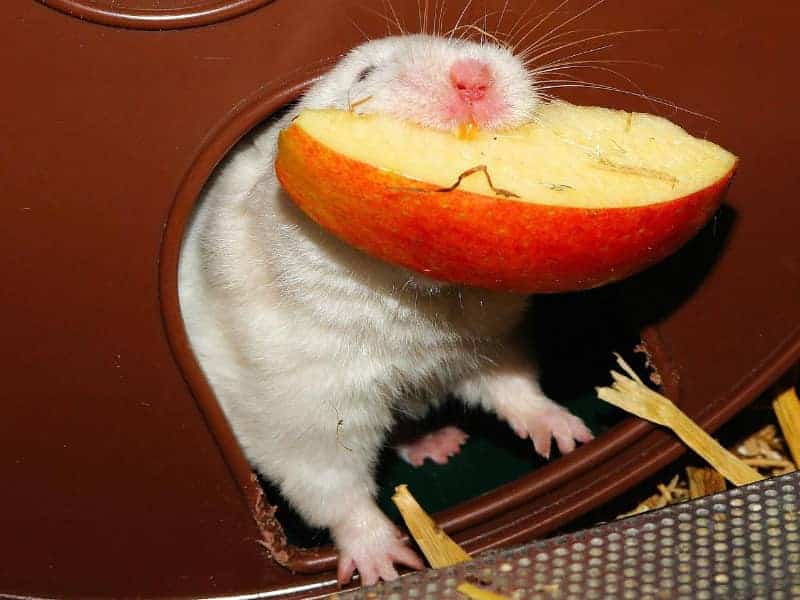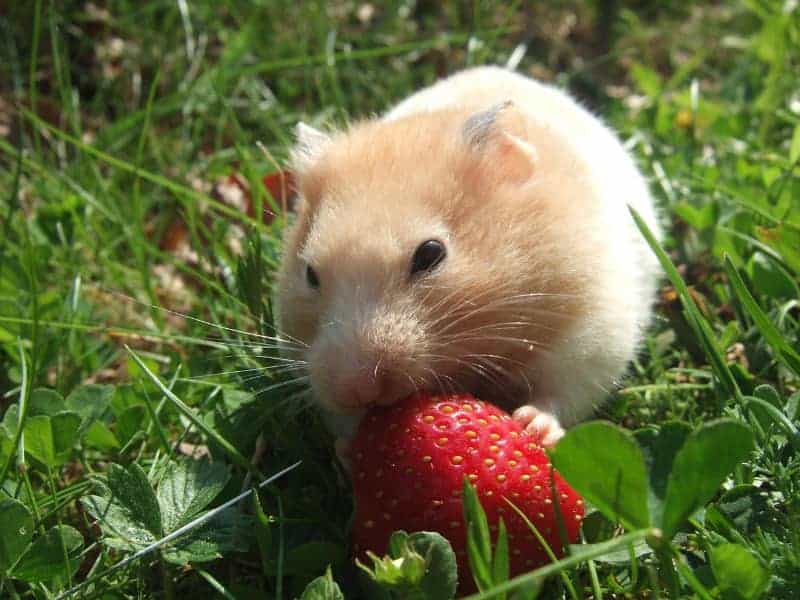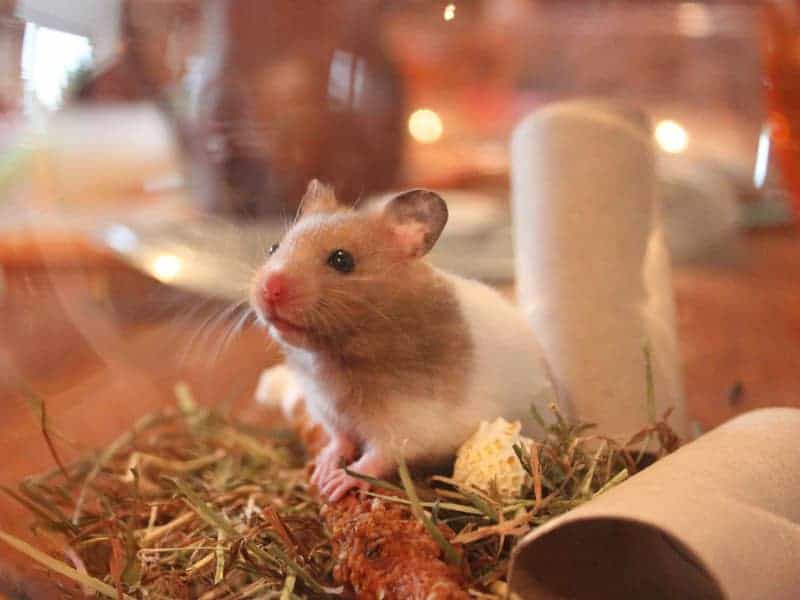
Are hamsters allowed to eat watermelon?
Yes, your hamster can eat watermelon. But even here there are restrictions, as with most other fruits, your hamster should never eat too much of it. As a treat primarily in the summer, watermelon is excellent. We tell you in our article, what you have to consider when feeding watermelon to your hamster.
Should hamsters eat watermelons?
The hamster is a herbivore and requires a diet where plants make up the majority of the diet. A watermelon is a plant, but it is one of the fruits and has a high water and sugar content. However, besides these two ingredients, watermelon also contains important minerals and vitamins.
Given this, it also makes sense to give your hamster watermelon, as food. But the quantity is crucial. Despite the many healthy ingredients, the sugar content should not be underestimated. Because the sugar leads, as with us humans also to undesirable results, such as obesity and in extreme cases also to diabetes.
Hamsters in particular are very sensitive to sugar overfeeding. They get fat quickly and can develop diabetes much faster than other creatures. Another aspect is the high water content of watermelon, because too much of this liquid can cause your animal to get diarrhea. Therefore, carefully approach how well your animal tolerates the watermelon.
How to feed your hamster watermelon
If your hamster has never eaten watermelon before, then you should observe your animal closely when it is these fruits for the first time. You should start feeding with small cubes that have an edge length of 5 × 5 mm. Offer your hamster one of these cubes, preferably on a surface that is clean. For example, his ceramic or porcelain bowl.
When preparing the cubes of watermelon, you should make sure that there are no seeds or peel on or in the cubes. The rind is often contaminated with pesticides and the seeds can cause digestive problems. If you can, go for organically grown watermelons. Otherwise, pay close attention that no peel or seeds are fed.
Now watch closely what your hamster does with the melon. Some hamsters often store a new food item in their cheek pouches to be eaten later or placed in their storage area. If your hamster doesn't eat the melon right away and you don't see what he's doing with it, then you need to inspect the hamster enclosure the next day at the latest to pick up any leftovers.
Because especially young hamsters often can not recognize which food is spoiled or not. Here you have to be very attentive and protect your animal.
After feeding, closely monitor the hamster
If your hamster accepted the melon enthusiastically and consumed it immediately, then the time begins and your animal should observe closely. Do not have too much fear and uncertainty in this observation. Even if your hamster once behaves unusually, this does not necessarily have to do with the feeding of the watermelon.
The time immediately after the shot and 2-4 hours later is important. Observe if your hamster is unusually quiet or hunkering down at a time when he is normally active. It is also important to closely observe your hamster's droppings. If it is mushy, then do not give food that has a high water content for a day or two.
If it is even liquid, then give only dry food. This is no problem for your animal and your animal can live so for weeks without problems. It is important to always offer fresh water, so that thirst can be quenched. If the diarrhea does not stop after one day, you should consult a veterinarian to exclude possible other diseases.
How much watermelon can a hamster eat?
Watermelon should always be considered a treat. Therefore, your hamster should eat a maximum of 2-3 cubes of watermelon with an edge length of no more than 1 cm twice a week. This amount should not be exceeded at all. You should make sure that if your hamster does not eat this amount at once, to reduce it.
Otherwise, your hamster may try to deposit the fruit pieces in his stash and they will spoil there. For smaller hamster breeds you should halve the amount. This way you are on the safe side and the risk of diabetes or diarrhea remains low.
Are golden hamsters allowed to eat watermelon?
Of course, here the same applies as for any hamster. Especially the large breeds tolerate watermelon excellently. They gladly accept the watermelon and especially in summer it is a nice change on their menu. Please always follow the feeding recommendation.
Are dwarf hamsters allowed to eat watermelon?
Yes, dwarf hamsters can also eat watermelon. The only thing to keep in mind here is that the portions are much smaller than those of the larger hamster breeds. It should also be noted that dwarf hamsters are much more susceptible to diabetes than the other breeds. Therefore, pay close attention to the feeding recommendation.
Watermelon as an attractant for your hamster
There are hamsters for whom watermelon is a highlight on the menu. You can use this situation to make your animal more trusting. Take a small piece of melon and put it on your fingertips. The hamsters recognize your hand and your smell, because you give them the rest of the food. So they will curiously look at your hand and see what is there.
The attraction will not work immediately with every hamster. Therefore, keep trying and the more often you do this, the more likely it is that the hamster will accept the food. If your hamster takes the watermelon from your fingertips, place it a little further back on your hand the next time. So that he has to climb onto your hand with his front feet.
As soon as the hamster realizes that there is no danger from your hand, he will become more and more trusting and one day he will sit on your hand to eat the watermelon.
Can a hamster eat watermelon every day?
No, absolutely not. Although watermelon is good for your pet from most of the ingredients, a watermelon is not suitable for daily feeding. The reason for this is the high water and sugar content. The high water content can cause your hamster to get diarrhea and become dehydrated. Dehydration can be life threatening and should be avoided.
The second important reason is the sugar content. In the wild, hamsters consume very little of it and live in dry areas where they mainly feed on seeds and grasses. Fruits play only a subordinate role and this is exactly what you should consider in your animal husbandry.
Author

-
Garden animal - A life with nature
Welcome to my animal blog! My name is Dirk and I am happy to take you on my journey through the fascinating world of animals and gardening.
Born 54 years ago, I have had an insatiable curiosity for the animal world around me since childhood. Although I have moved professionally in other industries, my true passion has always been animals and nature. It is remarkable how a small garden has become such an important part of my life.
Many of my fondest memories are associated with the animals that share our home. Whether it's the curious squirrels that scurry across the trees in the morning, the colorful variety of birds that visit our feeders, or the busy bees and butterflies that pollinate our flowers, every moment with them is invaluable to me.
This blog is my contribution to share my experiences, discoveries and insights with like-minded people. Here I will share stories of unforgettable encounters with animals, give tips on gardening and creating wildlife-friendly habitats, and take you on my journeys through nature.
Thank you so much for being here!
Cordial,
Dirk aka garden animal
Last posts
- 27. February 2024PetsVeganes Hundefutter – Grün und Gesund?
- 18. January 2024ChickensOregano für Hühner
- November 27, 2023HamsterDiurnal hamsters
- November 24, 2023HamsterHamster hammock

